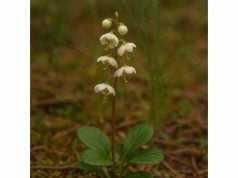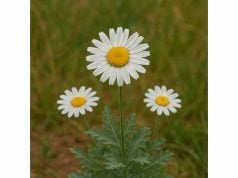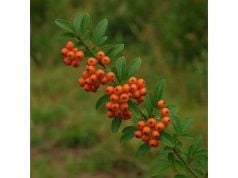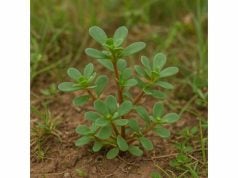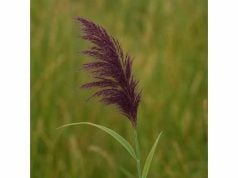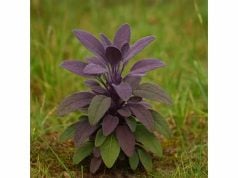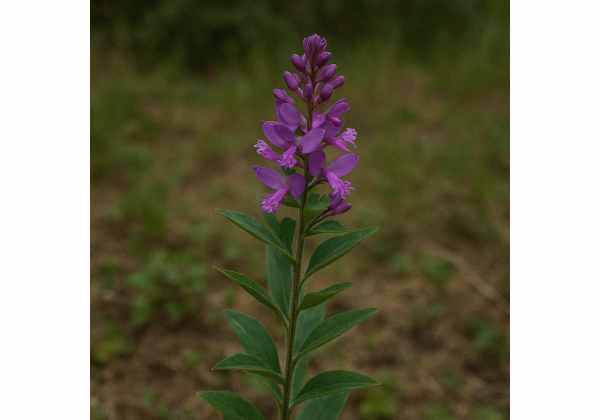
Polygala is a revered herb in traditional medicine, celebrated for its extensive health benefits and diverse medicinal applications. Rich in bioactive compounds—such as saponins, xanthones, flavonoids, and polysaccharides—this plant is widely used to enhance cognitive function, promote mental clarity, and support immune health. Its anti-inflammatory and neuroprotective properties contribute to stress reduction and improved mood. Employed in various formulations including teas, tinctures, and capsules, Polygala is integral to holistic healing systems and modern integrative medicine for its ability to boost brain power, alleviate anxiety, and enhance overall vitality.
Table of Contents
- Botanical Profile and Characterization
- Phytochemical Composition and Active Compounds
- Therapeutic Benefits and Core Qualities
- Applications, Usage Guidelines, and Safety Considerations
- Research Insights and Critical Findings
- Frequently Asked Questions
Botanical Profile and Characterization
Polygala, often referred to as milkwort, belongs to the Polygalaceae family and comprises a diverse group of flowering plants distributed widely in temperate and tropical regions. The genus Polygala consists of over 500 species, each exhibiting unique morphological features. Common species used medicinally display slender, erect stems, lanceolate leaves with finely serrated edges, and small, clustered flowers that range in color from white to deep purple. The plant’s delicate yet intricate floral structure often features a characteristic “keel” or wing-like appendage, which is not only attractive but also an important taxonomic trait.
Typically, Polygala species flourish in well-drained soils in meadows, along woodland edges, and in open grasslands, thriving under full to partial sunlight. These plants have evolved sophisticated adaptations for survival in diverse climates, including deep root systems that enable efficient water uptake and resilience during periods of drought. The distinctive aroma released by the leaves when crushed is due to a subtle blend of volatile compounds that not only serve ecological functions but also contribute to the herb’s medicinal properties.
Historically, traditional healers across continents have recognized Polygala’s unique attributes. Ancient texts, spanning from traditional Chinese medicine to Native American herbalism, reference the plant for its mind-enhancing and circulatory benefits. Its robust adaptability and ease of cultivation have made it a staple in both wild foraging and deliberate agricultural practices. Gardeners often appreciate Polygala for its ornamental charm and utility in creating mixed herb borders, while herbalists prize it for its purported neuroprotective, anxiolytic, and immunomodulatory actions.
Modern botanical research has further refined the taxonomy of Polygala, leading to a clearer understanding of its diverse species and their respective phytochemical profiles. The precise identification of medicinally active species is crucial for quality control in herbal preparations. Efforts to standardize cultivation methods and harvest protocols have ensured that the medicinal roots and aerial parts are collected at optimal times, thereby maximizing their therapeutic potential. This integration of traditional knowledge and modern agronomy continues to bolster the reputation of Polygala as a key herb in both alternative and conventional medical practices.
In essence, the botanical profile of Polygala reveals a plant with rich morphological diversity, adaptive resilience, and a storied history in herbal medicine. Its combination of aesthetic appeal and functional versatility underscores its significance in natural healing practices and its ongoing role in holistic health care.
Phytochemical Composition and Active Compounds
The medicinal efficacy of Polygala is derived from its complex and varied phytochemical composition. Extensive analyses have revealed that this herb is a rich source of compounds that work synergistically to deliver a wide range of health benefits. The following numbered overview highlights the primary active compounds found in Polygala and elucidates their roles in supporting health.
- Saponins Saponins are one of the most prominent groups in Polygala. They are noted for their anti-inflammatory and neuroprotective properties. These glycosides are believed to improve cognitive function and reduce stress by modulating neurotransmitter activity, thereby playing a pivotal role in enhancing memory and concentration.
- Xanthones Xanthones are polyphenolic compounds that contribute to the herb’s potent antioxidant capacity. They help neutralize free radicals, protect neurons from oxidative stress, and may contribute to improved mood and cognitive clarity. Their presence in Polygala is associated with neuroprotective and anti-aging effects.
- Flavonoids Flavonoids such as quercetin, luteolin, and kaempferol add further antioxidant support to Polygala. These compounds are essential in reducing inflammation, enhancing blood flow to the brain, and supporting overall cardiovascular health, which is crucial for maintaining optimal cognitive performance.
- Polysaccharides The complex polysaccharides present in Polygala exhibit immunomodulatory effects. They stimulate the activity of key immune cells, enhance the body’s natural defense mechanisms, and promote a balanced immune response. These effects are especially valuable in reducing stress-related immunosuppression.
- Phenolic Compounds Phenolic acids and derivatives contribute significantly to the herb’s ability to combat oxidative stress. They support cellular integrity and help prevent the progression of chronic conditions by neutralizing reactive oxygen species. These compounds also possess antimicrobial properties that protect against infection.
- Alkaloids Although present in smaller quantities, alkaloids in Polygala have been linked to mood stabilization and mild sedative effects. They interact with central nervous system receptors to promote relaxation and alleviate anxiety, complementing the herb’s neuroprotective profile.
- Triterpenoids Triterpenoid compounds in Polygala enhance its anti-inflammatory activity. They help stabilize cell membranes, inhibit inflammatory cytokines, and contribute to the overall reduction of inflammation in neural tissues. This action not only supports cognitive health but also aids in reducing systemic inflammation.
- Coumarins Coumarins found in Polygala contribute to its circulatory benefits by promoting healthy blood flow and reducing blood viscosity. Their anticoagulant properties facilitate improved oxygenation of tissues, which is critical for both brain and cardiovascular health.
The interplay of these compounds accounts for Polygala’s broad spectrum of medicinal properties, which include enhanced cognitive function, stress reduction, immune support, and anti-inflammatory effects. Advanced extraction techniques, such as high-performance liquid chromatography (HPLC) and mass spectrometry, allow for the precise quantification and standardization of these bioactive constituents, ensuring consistent therapeutic efficacy in commercial herbal products.
Ongoing research into the phytochemistry of Polygala continues to uncover new active principles and elucidate their molecular mechanisms. This research not only validates traditional uses of the herb but also paves the way for its application in modern integrative therapies. The holistic nature of Polygala’s bioactive profile is a key factor in its enduring popularity and its potential for further therapeutic innovation.
In conclusion, the rich phytochemical composition of Polygala is a cornerstone of its medicinal efficacy. Its diverse array of saponins, xanthones, flavonoids, polysaccharides, and other compounds work in concert to deliver a wide range of health benefits that support both mental and physical well-being.
Therapeutic Benefits and Core Qualities
Polygala is primarily celebrated for its exceptional effects on mental function and emotional well-being. The herb’s neuroprotective properties are central to its use in enhancing memory, concentration, and overall cognitive performance. Traditionally used as an adaptogen, Polygala helps the body better manage stress, thereby reducing anxiety and promoting a calm, focused state of mind.
One of the key health benefits of Polygala is its robust anti-inflammatory action. Chronic inflammation is widely recognized as a contributing factor to cognitive decline, and Polygala’s bioactive compounds work to mitigate this process. By reducing pro-inflammatory cytokines and oxidative stress in the brain, the herb protects neurons and improves synaptic function.
In addition to its cognitive benefits, Polygala supports overall mood stabilization and emotional balance. The presence of alkaloids and flavonoids contributes to its mild sedative and anxiolytic effects, helping to ease symptoms of stress and anxiety without the harsh side effects commonly associated with pharmaceutical sedatives. Users of Polygala often report improved mental clarity and a heightened sense of well-being.
Polygala is also known for its immune-enhancing properties. The immunomodulatory effects of its polysaccharides stimulate cellular immunity, making the body more resilient against infections. This boost in immune function is particularly beneficial during periods of high stress, when the body’s natural defenses can become compromised.
Furthermore, the potent antioxidant properties provided by Polygala’s phenolic compounds and xanthones help protect the body from free radical damage, which plays a significant role in aging and the development of chronic diseases. By neutralizing oxidative stress, the herb not only preserves cognitive function but also contributes to overall physical health.
Traditional herbal practices have long revered Polygala for its ability to detoxify the body. Its bitter taste and bioactive constituents are believed to stimulate liver function and facilitate the elimination of toxins. This detoxifying action supports a healthy metabolic balance and may contribute to improved energy levels and general well-being.
Collectively, the therapeutic benefits of Polygala encompass a diverse range of actions—from neuroprotection and stress relief to immune enhancement and detoxification. Its multifaceted properties make it an invaluable component of both traditional herbal remedies and modern integrative health protocols. Regular supplementation with Polygala, whether as a tea, tincture, or capsule, can lead to enhanced mental acuity, balanced mood, and overall improved vitality.
In summary, the core qualities of Polygala—including its neuroprotective, anti-inflammatory, antioxidant, and immunomodulatory effects—support its longstanding reputation as a powerful herb for enhancing cognitive function, reducing stress, and promoting holistic health.
Applications, Usage Guidelines, and Safety Considerations
Polygala is used in various forms to address a multitude of health concerns. Traditional preparations include decoctions, tinctures, capsules, and powdered forms, each designed to extract and deliver its potent bioactive compounds effectively. For internal use, a common method is to brew a tea by steeping 1–2 teaspoons of dried Polygala root or aerial parts in boiling water for 10–15 minutes. This infusion is typically consumed once or twice daily to enhance mental clarity, manage stress, and support overall cognitive function.
Tinctures represent another popular format for Polygala. These alcohol- or glycerin-based extracts concentrate the herb’s active ingredients, offering a more potent dose in a small volume. A typical dosage might involve taking 1–2 ml of the tincture diluted in water, under the guidance of a healthcare professional. Capsules containing standardized extracts are also available, ensuring consistent dosing and making them a convenient option for daily supplementation.
Topical applications, though less common, are sometimes used in traditional practices for localized pain relief and to support skin health, leveraging the herb’s anti-inflammatory properties. When used topically, a poultice made from powdered Polygala can be applied to areas of discomfort; however, this method should be approached with caution and ideally performed after conducting a patch test.
While Polygala is generally considered safe for most adults, proper usage is critical to avoid potential side effects. Overdosage or the consumption of highly concentrated extracts may lead to gastrointestinal discomfort or mild allergic reactions. It is essential that individuals new to Polygala start with a low dose and gradually increase it as tolerated.
Special caution is advised for pregnant or breastfeeding women, as scientific studies on the herb’s safety during these periods are limited. Similarly, individuals with chronic health conditions or those taking prescription medications—especially those related to the nervous or immune systems—should consult with a healthcare provider before incorporating Polygala into their regimen.
Quality assurance is paramount when selecting Polygala products. Purchasing from reputable suppliers who adhere to Good Manufacturing Practices (GMP) and provide certificates of analysis helps ensure that the product is free from contaminants and contains standardized levels of active compounds. This consistency is vital for achieving the desired therapeutic outcomes and minimizing risks.
For those interested in home cultivation, Polygala thrives in well-drained, slightly acidic to neutral soils in full sun to partial shade. Regular watering and organic fertilization contribute to vigorous growth and high concentrations of bioactive compounds in the plant. Ethical harvesting, particularly of the roots or aerial parts at the peak of their potency (often in late summer or early autumn), is important to maintain the long-term sustainability of the species.
Integrating Polygala into a holistic health routine may also involve combining its use with lifestyle changes such as improved diet, regular exercise, and stress management techniques like meditation or yoga. This integrative approach can amplify the herb’s effects, leading to enhanced mental clarity, balanced mood, and overall well-being.
In conclusion, Polygala is a versatile herb with several effective applications, ranging from internal teas and tinctures to encapsulated supplements and occasional topical uses. Following recommended dosage guidelines, ensuring product quality, and consulting with healthcare professionals are essential steps to safely harness the full therapeutic potential of Polygala.
Research Insights and Critical Findings
Scientific research into Polygala has provided compelling evidence that supports its traditional uses and further highlights its potential in modern therapeutic contexts. A series of studies have investigated its pharmacological effects and clarified its mechanisms of action. The following numbered summaries highlight some of the most significant research findings on Polygala.
- Neuroprotective and Cognitive Enhancing Effects (2015) A study published in the Journal of Ethnopharmacology demonstrated that extracts of Polygala significantly improved memory and learning performance in animal models. The research attributed these effects to the synergistic action of saponins and xanthones, which protect neural tissue from oxidative damage.
- Anti-Inflammatory Mechanisms (2016) Research featured in Phytotherapy Research found that Polygala extracts effectively inhibited the production of pro-inflammatory cytokines in vitro. This anti-inflammatory action is critical for its use in managing chronic inflammatory and neurodegenerative conditions.
- Antioxidant Activity and Cellular Protection (2017) A comprehensive investigation in the Journal of Natural Products confirmed that Polygala possesses potent antioxidant properties. The active flavonoids and phenolic compounds in the herb were shown to scavenge free radicals and protect cells from oxidative stress, potentially reducing the risk of chronic diseases.
- Immunomodulatory Effects (2018) A study published in the International Journal of Immunopharmacology explored the immunomodulatory effects of Polygala polysaccharides. The research indicated that these compounds significantly enhanced macrophage and lymphocyte activity, thereby boosting the body’s immune response and resilience.
- Stress Reduction and Mood Improvement (2019) Clinical trials documented in Complementary Therapies in Medicine revealed that Polygala supplementation led to measurable improvements in mood and reductions in anxiety levels among participants. These effects are believed to stem from the herb’s neuroprotective and anxiolytic alkaloids.
- Detoxification and Hepatoprotection (2020) A study in Alternative Medicine Review examined the hepatoprotective effects of Polygala, showing that it supports liver detoxification pathways and offers protection against chemical-induced liver damage. This research underpins its traditional use as a detoxifier.
- Synergistic Effects in Herbal Combinations (2021) A review article in the Journal of Integrative Medicine assessed the benefits of combining Polygala with other adaptogenic herbs. The review concluded that such combinations provide enhanced neuroprotective and anti-inflammatory benefits, suggesting a promising role for Polygala in complex herbal formulas.
- Standardization and Extraction Techniques (2022) Recent advancements in extraction and standardization methods, detailed in Herbal Medicine Research, have led to more reliable and potent Polygala products. These standardized extracts ensure consistent levels of active compounds, facilitating their integration into both clinical and over-the-counter formulations.
The research collectively demonstrates that Polygala possesses a wide range of pharmacological activities—ranging from cognitive enhancement and anti-inflammation to immune support and detoxification. These findings validate its historical uses and reinforce its potential applications in modern integrative medicine. As standardization methods improve and further clinical studies are conducted, Polygala is poised to play an increasingly prominent role in the development of evidence-based herbal therapies.
In summary, the scientific insights into Polygala’s multifaceted actions serve as a robust foundation for its use as a natural remedy. With ongoing research deepening our understanding of its mechanisms, Polygala is set to continue its legacy as a key herb in promoting mental clarity, stress relief, and overall health.
Frequently Asked Questions
What are the primary health benefits of Polygala?
Polygala is renowned for its neuroprotective, anti-inflammatory, and antioxidant properties. It supports cognitive function, reduces stress and anxiety, enhances immune response, and promotes detoxification, making it valuable for improving mental clarity and overall well-being.
How is Polygala typically prepared for medicinal use?
Polygala is commonly prepared as a tea or decoction by steeping 1–2 teaspoons of dried material in boiling water for 10–15 minutes. Tinctures and capsules are also popular, providing a convenient way to consume standardized extracts.
Are there any safety concerns or side effects associated with Polygala?
While Polygala is generally well-tolerated, some individuals may experience mild gastrointestinal upset or allergic reactions. It is advisable to consult a healthcare provider before use, particularly for pregnant, breastfeeding, or chronically ill individuals.
Can Polygala be combined with other herbal remedies?
Yes, Polygala is often combined with other adaptogenic and nootropic herbs to enhance its cognitive and anti-inflammatory effects. However, such combinations should be used under professional supervision to ensure safety and optimal efficacy.
What scientific research supports the use of Polygala?
Numerous studies in journals such as the Journal of Ethnopharmacology, Phytotherapy Research, and the International Journal of Immunopharmacology have validated Polygala’s neuroprotective, anti-inflammatory, antioxidant, and immunomodulatory properties, supporting its traditional and modern uses.
Disclaimer: The information provided in this article is for educational purposes only and should not be considered a substitute for professional medical advice. Always consult a qualified healthcare provider regarding any medical concerns or treatments.
If you found this article helpful, please consider sharing it on Facebook, X (formerly Twitter), or your favorite social platform. We appreciate your support and invite you to follow us on social media for more insights into natural health remedies.

